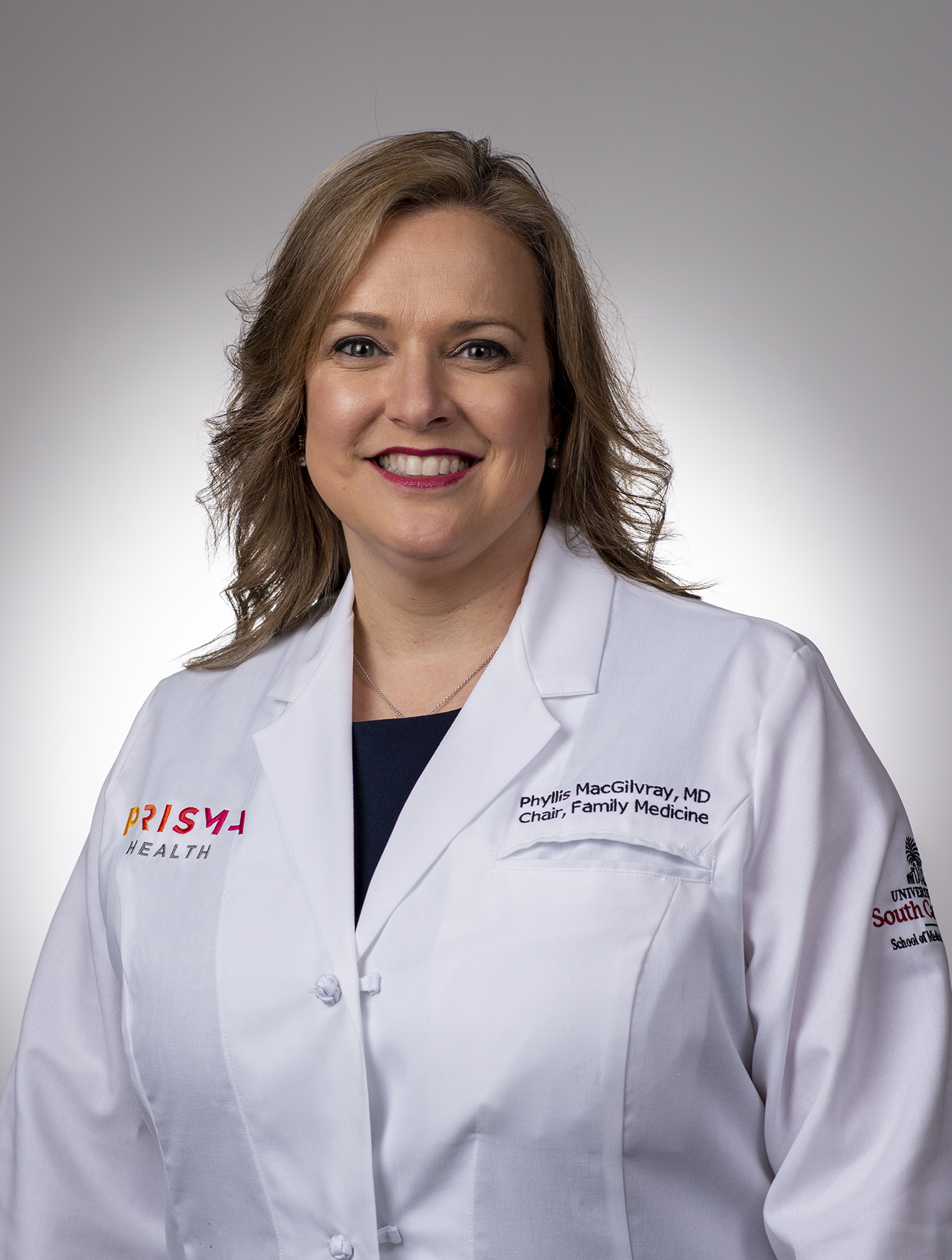About
Phyllis MacGilvray joined Prisma Health in 2018 as Vice Chair for Academic Affairs in the Department of Family Medicine and in 2020 began her current role as Department Chair. She is an associate professor at the University of South Carolina School of Medicine-Greenville. She earned her Bachelor of Science in Biochemistry from Clemson University and Doctor of Medicine from the Medical University of South Carolina. After completing her residency at the University of Vermont, she held numerous faculty positions, served as the Family Medicine Residency Program Director and the Designated Institutional Official for Naval Hospital Camp Lejeune, and Vice Chair for Medical Student Education at University of Texas HSC San Antonio. As department chair with Prisma Health, she supports three Family Medicine residency programs across the upstate, oversees medical student education across the department, mentors students and residents in research and scholarly activities, and serves the medical school on the Appointment & Promotions Committee. Nationally, she is a member of the Prescribers’ Letter National Editorial Board Recommendations Panel, the Association of Departments of Family Medicine, the Society of Teachers of Family Medicine, and is a Fellow of the American Academy of Family Physicians. An active clinician-educator, her passions are caring for patients of all ages and stages of life, teaching and mentoring medical students and residents, and attracting students to careers in Family Medicine.
How their research is transforming health care
As a family medicine educator, MacGilvray is passionate and committed to the medical students and residents across Prisma Health–Upstatecampuses. Our graduates will undoubtedly be change agents and leaders within the future of healthcare transformation. In response to the COVID-19 pandemic, we have all needed to embrace telehealth in a way never imagined previously. Graduate medical education should be at the forefront of leading chronic disease outcomes and impacting health behavior change. As a former program director and current department chair, I value the academic contributions of our graduate medical education team and most importantly value the impact our resident physicians have on vulnerable patients impacted by social determinants of health in our communities. The improvement of health literacy is vital to elevate not only the success of telehealth visits, but also the improvement in chronic disease states for our most vulnerable patients. The COVID-19 pandemic has highlighted a longstanding need for improving health literacy in a way that has provided not only awareness of the issue but also an urgency in addressing this deficiency. The potential intervention will provide training on health literacy material with the core focusing on teach-back methods to confirm patient understanding during telemedicine primary care visits.
Health research keywords
Telehealth; health literacy; medical education; primary care; family medicine

